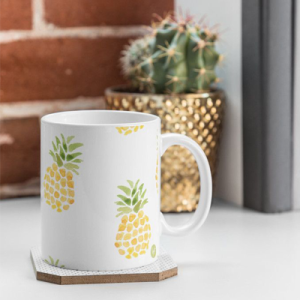Make Your Home Your Friend
Catriona Watson has been working with residential clients since 2014. In this guest blog post, she talks about the importance of considering your home a 'friend'.

One of my clients calls his home ‘a machine for living’. There are basic tasks it needs to be able to complete in order to function properly as a home, and I’ve listed a few of them here. But I would also add that when your home is your ‘friend’ and not just a ‘machine’, it will carry you through bad times. Steady home systems bring routine and calm. In my younger days I may have found this incredibly boring, but now I think they provide the opportunity to avoid time-wasting chaos and provide a focus for things that we enjoy.
So here are my top five ‘friend-making’ tips for your home.
- Make your bed space somewhere peaceful and comfortable.
Do not have a TV or games console to play in bed, bed is for sleeping. Set your alarm clock to get up at approximately the same time every morning, even at weekends and help your body learn ‘bedtime’.
- Declutter your poisons.
Are you making it harder for your system to cope with life by loading it with stuff it doesn’t need? Alcohol, caffeine, cigarettes, all stimulants…. put it all under the microscope and ask yourself if it is harming you (or others), and if you would be better off without it. Make provision in your kitchen for alternatives that please you and that don’t require a mental workout. This is a long term goal and I’m not including prescribed medication here – to explore how your medication is working you will need to work closely with a clinician. Also make provision for basic self care – water based drinks, food hygiene – and the occasional treats.
- Make your home your hospital.
If you are injured, overwhelmed, distressed, unhappy, your home is your greatest resource for helping yourself feel better independently of services that may be hard to access. Appoint yourself ‘ward manager’ and go on any self management training you can. Sometimes we need to be alone and private to process our experiences and reflect. A physical space that makes that possible is essential.
- Make your home a place of welcome and refuge for others too.
Can you make a quick lunch for a friend, have someone stay the night at short notice, lend them a pullover? Time with friends but no money is much easier than time with money but no friends. Make hospitality part of your home design.
- Make your home a potential workplace.
You will certainly need to study, write, create, research, do your personal accounts. Other people won’t do these for you, your home design task is not if but where you do them.
Sometimes when a patient has been brought into hospital after an accident, once initial treatment has been given and they are past an acute phase, they are described as being in a ‘comfortable condition’. This doesn’t mean they aren’t seriously unwell, it just means that obvious environmental things that can be controlled have been addressed so that the longer-term process of healing and rehabilitation can proceed in its own time.
To be able to make yourself ‘comfortable’ after an emergency is probably one of the highest callings of a home. In a time of ‘austerity’, it may be all we have anyway. Enjoy the creative challenge of this – it may be that decluttering your home opens out opportunities in your life you thought you’d never be able to reach.
Perhaps Catriona's blog post has inspired you to consider a career as a professional organiser in order to help others gain calm and clarity in their homes? Or do you need the help of one of the 250 plus accredited APDO members in the UK? Visit APDO website for more information.
